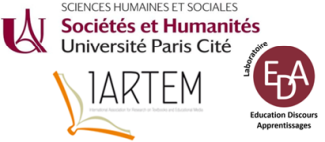Research question: This paper is part of an ongoing doctoral thesis dedicated to the study of Portuguese language textbooks for high school and the publishers that produce them. I pay special attention on language concepts and representations of teaching writing present in these books. In this paper, I pose the following research question: Is it possible that, through the representation of teaching writing in school exercises, publishers reveal certain expectations about the social purpose of high school education in Brazil, given their political and commercial conditions? (Chervel, 1988). Framework: This paper, as well as the thesis from which it is derived, aligns with applied linguistics. Within this field, it draws close to discursive approaches of French tradition. The distinctive feature of this framework is to recognize socially and historically determined meanings within language forms (Foucault, 1969; Pêcheux, 1975). This theoretical framework also calls for interdisciplinary relations with history, particularly the branch dedicated to the study of writings and the actions they perform (Carel & Ribard, 2022). Sample and method: In the ongoing thesis, the material consists of 10 pairs of Portuguese language textbooks from two Brazilian publishers, Companhia Editora Nacional (1925-1980) and Abril/Somos Educação (2004-2018). These books were their biggest editorial successes, fact determined through analysis of internal documents of the publishers (when available) and Brazilian policies on acquisition and distribution of textbooks. In this paper, I explore the book Literatura e Linguagem by Heitor Megale and Marilena Matusoka, published in 1975 by Companhia Editora Nacional. The analysis method involves systematizing all writing exercises present in the book and analyzing the explicit and implicit actions they perform. It is an indicial analysis method that, although involving formal elements, is not characterized by repeatability. On the contrary, it is distinguished by the investigation of singular clues that allow observation of a particular discursive functioning. Partial results: Literatura e linguagem presents 13 exercises explicitly and exclusively dedicated to writing, distinguished from the large number of exercises in the book. The abundant presence of exercises signals an attempt by the publisher to adapt to expectations of a new type of textbook and maintain its leadership position in the school market. The writing exercises in question exhibit the following characteristics: (i) imperative tone; (ii) organization in the form of a script; (iii) explicit reference to grammatical and literary themes presented in the chapters; (iv) solicitation of the use of specific language forms; (v) contextualization of writing. These characteristics suggest once again an attempt to assimilate dominant trends in the Portuguese language textbook market by Nacional. On one hand, this stance suggests its weakening as a company and as a political actor. On the other hand, it reflects some expectations about the purpose of high school education, only partially consistent with current school programs: (i) procedural orientation; (ii) professional, rather than university, purpose; and (iii) uncertainty between literary tradition and scientific tradition.
Carel, M.; Ribard, D. (2022). Gestes et actions avec les mots. Linguistique de l'écriture, n. 3, p. 331-354.
Chervel, A. (1988). L'histoire des disciplines scolaires. Réflexions sur un domaine de recherche. Histoire de l'éducation, vol. 38, pp. 59-119.
Foucault, M. (1969). L'archeologie du savoir. Paris: Gallimard.
Pêcheux, M. (1975). Les vérités de la Palice : linguistique, sémantique, philosophie. Paris: La découverte.

 PDF version
PDF version
